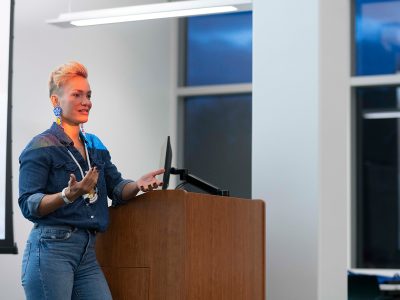By Elizabeth Kane
From June 17 to 21, at the Carleton University Fieldhouse, the community will come together to celebrate spring convocation. The ceremonies will honour more than 5,200 students as they receive their degrees.
In celebration, we are sharing the stories of five inspiring graduates whose accomplishments and contributions highlight the smart, caring and connected community values of Carleton.
- Alia Nichol, Bachelor of Engineering, Biomedical and Mechanical
- Johne Quiambao, Bachelor of Arts, Criminology and Criminal Justice
- Matthew Roach, Bachelor of Commerce
- Anna-Karina Tabuñar, Master of Arts, History with Specialization in Accessibility
- Jesukhogie Williams-Ikhenoba, Bachelor of Science, Neuroscience and Mental Health
Alia Nichol, Bachelor of Engineering, Biomedical and Mechanical
Alia Nichol was introduced to engineering at a young age, attending Carleton’s Virtual Ventures and Go Code Girl camps.
When she enrolled as an undergraduate student, she decided to pursue Biomedical and Mechanical Engineering to connect her passion for design with her interest in the medical field.
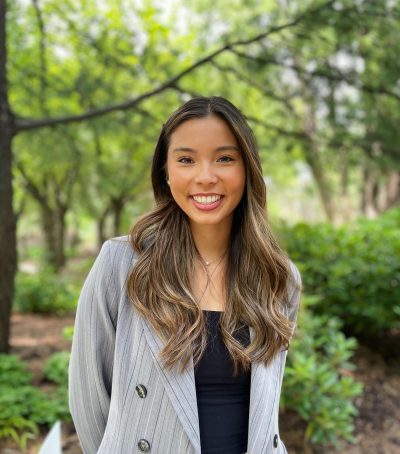
Alia Nichol
After beginning her studies at Carleton, Nichol reached out to professors to find research opportunities.
“As a first-year student, I had barely any work experience,” she recalls. “I told them I was looking to learn more about the field of engineering and asked if I could volunteer.”
Nichol found an opportunity with Prof. John Hayes, which kicked off an impressive series of research roles on a variety of projects throughout her undergrad.
In her third year, she took part in a 36-hour design competition where students create solutions to real-world engineering problems. Her three-person team designed the winning entry SQUiiDBot – a concept for a medical device that helps surgeons perform Coronary Artery Bypass Graft surgery with increased accuracy and efficiency.
“It was the first time I competed in a design competition with such intense time constraints,” she says. “It was both a great challenge and opportunity to collaborate with students from other universities.”
Nichol also completed a co-op term with the company Gastops.
“I worked on the Testing and Verification team,” she says. “I learned how to operate a variety of different machines and equipment, which allowed me to gain new skills outside of the classroom.”
Nichol has been very involved in campus life: being an EngFrosh facilitator, working with Engineers Without Borders, taking part in intramurals and mentoring the next generation through Virtual Ventures and Math Matters. She was recently recognized with a 2024 Provost Scholar award.
After graduation, Nichol will be joining a biomedical engineering company specializing in cardiac medical devices.
She encourages future students to get involved, even if they don’t have experience.
“Take a chance on yourself, you never know what can happen,” she says. “Once you get the ball rolling, more opportunities will come your way.”

Johne Quiambao, Bachelor of Arts, Criminology and Criminal Justice
After his family immigrated to Canada from the Philippines, Johne Quiambao noticed that they didn’t feel comfortable engaging with the legal system due to a lack of community support systems and unfamiliarity with Canadian legal processes.
“I realized I wanted to pursue education to be that support person for my family and future generations,” he says.
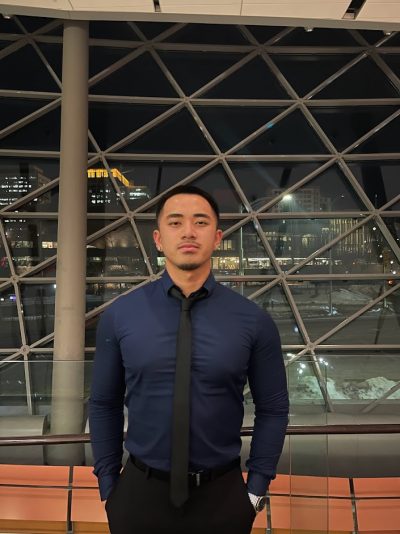
Johne Quiambao
To lay the foundation of his legal education, Quiambao pursued a Bachelor of Arts (Honours) in Criminology and Criminal Justice at Carleton.
While working on his honours research project, which explores the use of Artificial Intelligence in the legal system and the perspectives of BIPOC communities, Quiambao realized there were no criminology journals dedicated to undergraduate research that he could publish in.
Undeterred, he worked with a group of students to co-found and launch Carleton’s first undergraduate criminology journal, Crime and Ethos, at a symposium this past April. The publication garnered the support of faculty who shared their expertise with the enterprising students.
“I applaud the team because they didn’t know what they were getting into – there’s no other undergraduate journal like this within criminology,” he says. “They took a leap of faith and I’m so proud.”
Quiambao balanced launching the journal with his honours research and work placement at the Crown Attorney’s office at the Ottawa courthouse.
“We wanted to make this happen and this was an opportunity to exercise self-determination within academia,” he says.
Looking ahead, Quiambao will be pursuing a master’s degree in criminology and sociolegal studies and plans to attend law school in the future.
Though he’s leaving Carleton, the journal will continue – led by a new cohort of undergraduate criminology researchers.
“I’m glad to know that it will carry on and help students in the future know that their work isn’t disposable,” he says. “It’s not just something to sit on your laptop, it’s research that can actually be published.”
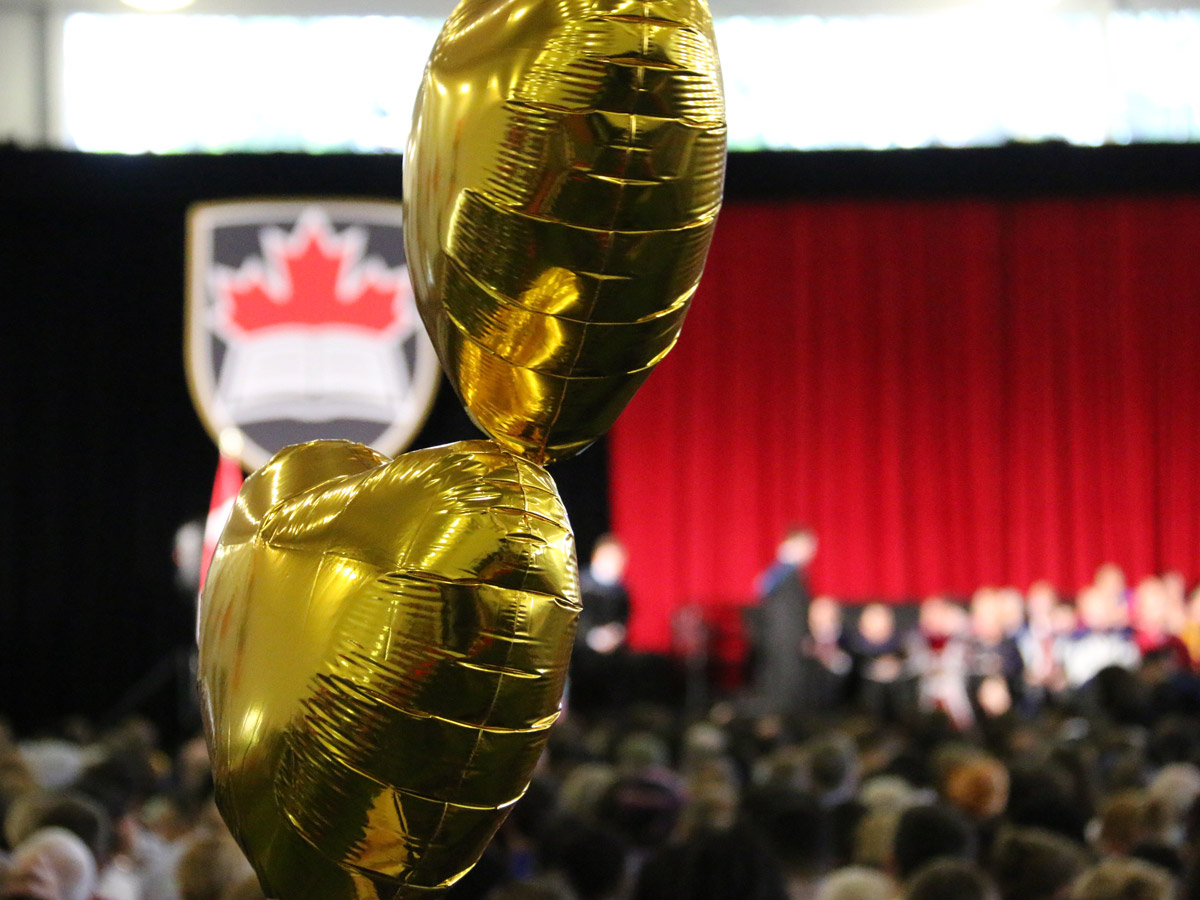
Matthew Roach, Bachelor of Commerce
Graduating Bachelor of Commerce student Matthew Roach was drawn to accounting when he realized the dynamic role and broad influence it has in the world of business.
As president of the Sprott Tax Students Association, his team has made a big impact – holding its Community Volunteer Tax Clinics on campus as well as partnering with Ottawa community leaders to organize clinics at Riverside United Church and the Blackburn Hamlet Community Center.
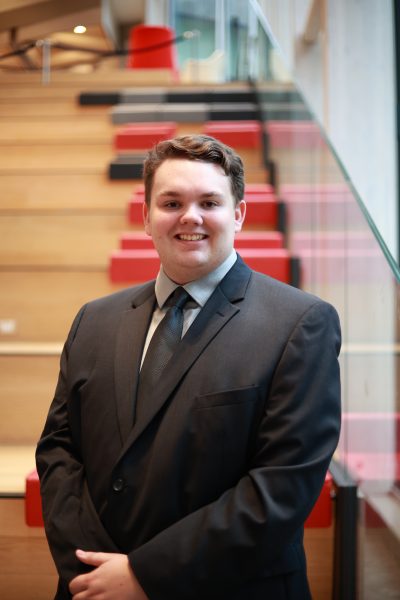
Matthew Roach
“When students file taxes they can get a lot of credits back from the government, which can help them either pay for their education or just help with the cost of living,” says Roach.
At a time when every dollar counts, the free tax clinic is a welcome relief. This year, the team completed a record 425 returns.
“We’ve helped save almost $50,000 for students and community members,” says Roach.
Filing taxes is an important step when accessing government benefits and services. The student group also organizes events to increase student tax literacy.
“We are helping to fill information gaps and ease their minds about getting taxes filed.”
Beyond leading the association, Roach taught more than 1,500 commerce students as a teaching assistant. He was recently recognized with a 2024 Provost Scholar award.
Following the completion of his undergrad degree, Roach is now enrolled in Sprott’s Master of Accounting program, where he will get work experience while he prepares for his CPA.
Roach encourages future Ravens to make the most of their time by getting involved in clubs on campus.
“Get involved and meet new people because the time is going to go by really fast,” he says. “You can keep up with your studies and take time to enjoy university.”
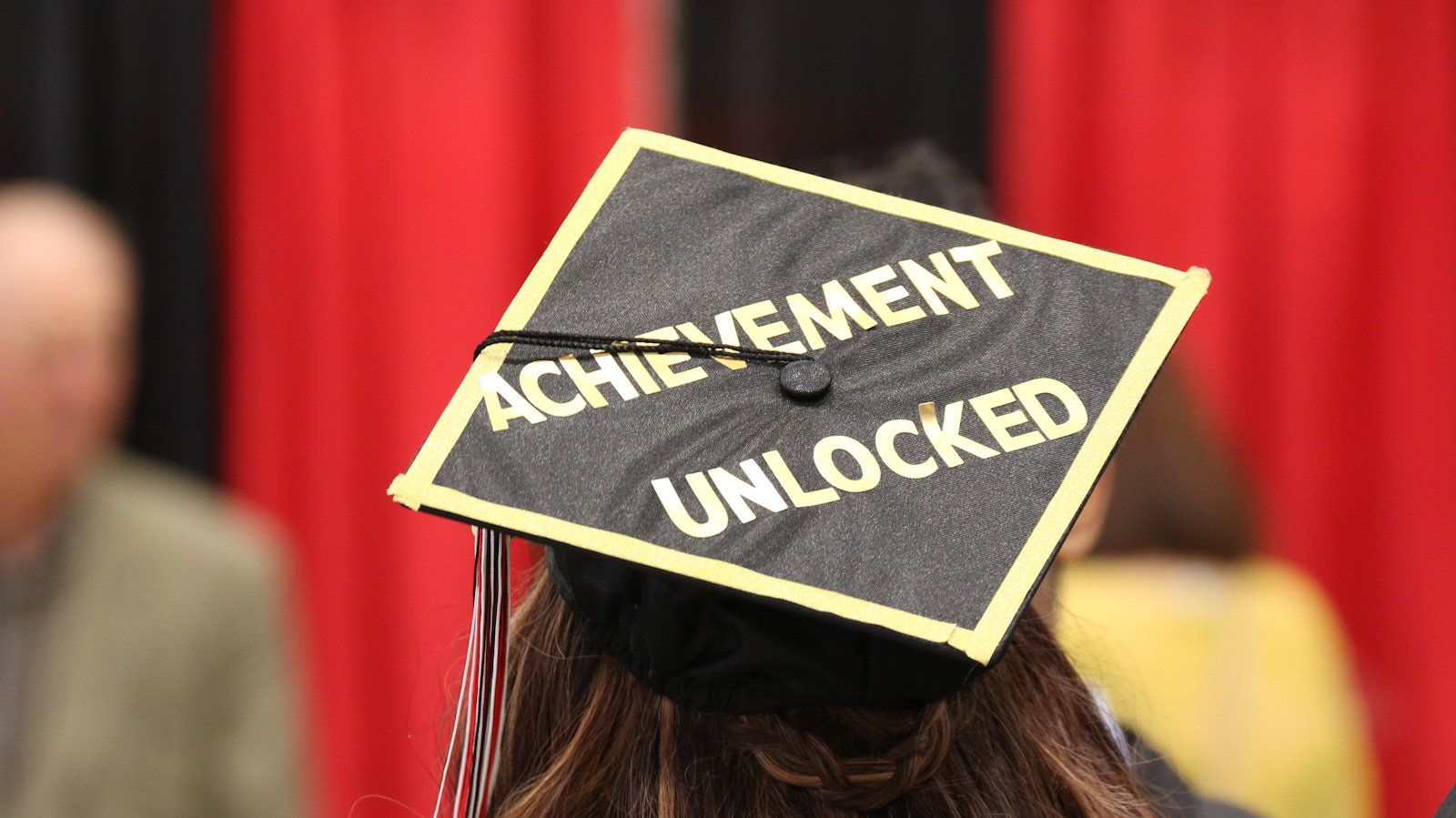
Anna-Karina Tabuñar, Master of Arts, History with Specialization in Accessibility
Anna-Karina Tabuñar is the first student to graduate with Carleton’s new specialization in Accessibility Studies. The Master of Arts (History) student came to Carleton with an established career – as a journalist and founder of a communications agency.
“My professional work has been steeped in disability and inclusion for the past decade,” she says. It has been informed by her experience living with a disability after she developed a rare variant of Guillain-Barre syndrome.
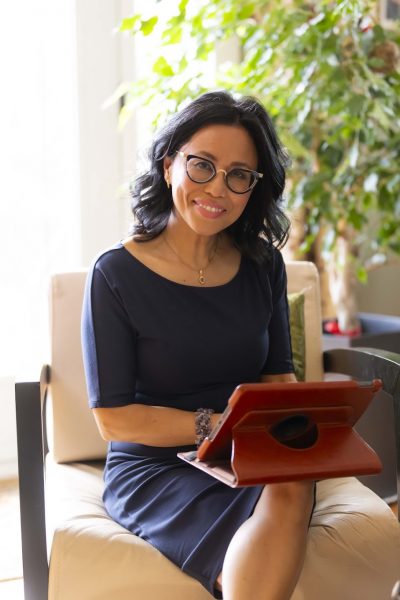
Anna-Karina Tabuñar
During the pandemic, she was drawn to the emerging issue of reintegration of employees that suffered from long COVID.
“I wanted to be able to study this issue so that I could better serve my clients with a deeper understanding of an emerging cohort of employees.” says Tabuñar.
In her search for the right academic fit, Tabuñar came across Carleton’s new specialization.
“I found out that Carleton was offering this great program that would include critical disability studies and inclusive design,” she says. “I thought: This is exactly what I want to do.”
Her final research project involved the Ottawa Hospital Rehabilitation Centre, which was running one of the first long COVID rehabilitation programs in Canada. Her project documented and analyzed the evolution of the program, as well as the societal factors and medical histories that shaped its roll-out.
“It’s very important to shift the conventional notion of disability as a static, stable, visible condition,” she says. “In fact, the majority of people with disabilities have dynamic and invisible disabilities which shape the ways they work and function.”
Her studies helped to complement her work outside of academia. She recently concluded an independent research project commissioned by Accessibility Standards Canada exploring episodic disabilities in the federal public service.
“This final report can help inform accessibility standards and impact federal departments, organizations and federally regulated industries,” says Tabuñar.
As she prepares to leave Carleton, she underscores the importance of everyone in the community taking an active role in accessibility – both on and off campus.
“Accessibility is not just about building a ramp,” says Tabuñar. “Accessibility is the everyday actions that show Carleton is living the values of being one of the most accessible universities in Canada.”

Jesukhogie Williams-Ikhenoba, Bachelor of Science, Neuroscience and Mental Health
Attending university abroad is a drastic adjustment at the best of times. Graduating science student Jesukhogie Williams-Ikhenoba came to Carleton from Nigeria during the COVID-19 pandemic, living in residence while classes were limited to virtual sessions and campus life was drastically changed.
Despite the stress, Williams-Ikhenoba was able to excel in his neuroscience and mental health studies.
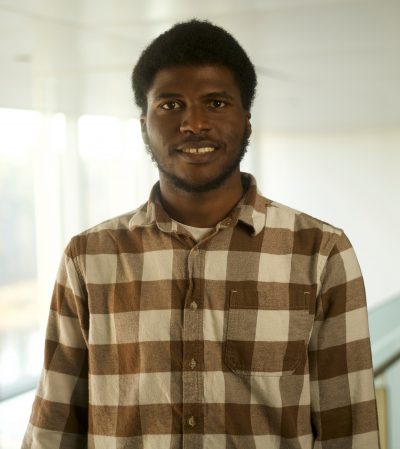
Jesukhogie Williams-Ikhenoba
When comparing programs across universities, Williams-Ikhenoba was drawn to the Carleton’s acceptance of neuroscience students in their first year of studies, research opportunities and the ability to complete a co-op placement.
During his second year, Williams-Ikhenoba became involved in Prof. Melissa Chee’s lab which investigates the neurobiology of obesity.
“One of the things that Carleton does really well is providing lots of opportunities for students to get involved in research,” he says. “I loved working in the lab because I found it was very hands-on.”
“My lab experience put the theoretical material in perspective,” he says.
Williams-Ikhenoba was included as a co-author in two publications.
“I was privileged to be able to see the outcome of some of my work,” he says. “I’m very proud of my research experience.”
Through co-op, he was able to continue lab research, get experience in a counselling office and work at the Canadian Food Inspection Agency – giving him confidence on future job prospects.
“I’ve accumulated interesting work experience and have gotten a feel for different career paths I may want to pursue.”
Looking ahead, Williams-Ikhenoba will be taking part in a summer research internship and plans to pursue opportunities in the biotech industry.
Recently recognized with a 2024 Provost Scholar award, his advice for incoming students is to set themselves up for success by taking advantage of the supports available.
“Carleton seems to have a solution for even undiscovered student problems,” says Williams-Ikhenoba. “Don’t be afraid to ask questions or ask for help when you need it.”
Monday, June 17, 2024 in Convocation 2024, Experiential Learning, Grad Stories
Share: Twitter, Facebook

